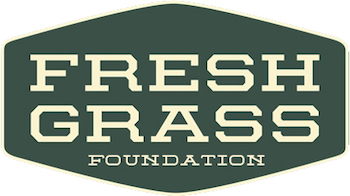In Memoriam: Peter Yarrow (May 31, 1938 – January 7, 2025)

Peter Yarrow, whose warm tenor vocals added a quavering emotional resonance to the trio Peter, Paul and Mary, has died at the age of 86. He succumbed to the bladder cancer with which he had been struggling for the past four years.
Peter Yarrow is likely best remembered for his lilting melancholy song “Puff, the Magic Dragon,” which he co-wrote with poet Lenny Lipton. The colorful lullaby-like tale of the journey of a friendship through happiness and sadness became the basis for an animated television special in 1978. Always active in causes related to social and political justice, Yarrow wrote “Day is Done” (1969), whose lyrics encourage future generations to work for justice in the world, and “The Great Mandala” (1967), an anti-war song. Yarrow turned both “Puff, the Magic Dragon” and “Day is Done” into illustrated children’s books.
Peter Yarrow landed in Greenwich Village after graduating from Cornell, where he had begun singing and playing in his course in American Folk Literature, affectionately titled “Romp-n-Stomp.” Soon after coming to New York in 1960, he appeared on the CBS television special “Folk Sound USA,” and then at the Newport Folk Festival, where he met Albert Grossman, Odetta’s manager. Grossman, hoping to put together a folk group that would rival the harmonies of the Weavers—one woman and three men, including Pete Seeger—suggested Yarrow meet Mary Travers, a contralto who had been singing in the clubs in the Village. The two met at Travers’ apartment and sang several songs together, recognizing how good their harmonies sounded. Yarrow and Travers performed as a duo for a short time before Travers suggested they add baritone Noel Paul Stookey. With the new trio—Peter, Paul and
Mary—Grossman had his group, and they started performing at the Bitter End and other Village clubs. Their eponymous debut album contained the trio’s version of Seeger and Lee Hays’ “If IHad a Hammer,” and Peter, Paul and Mary’s single won two Grammys, the full album sold over two million copies. On the same album, Yarrow’s resonant is featured as the lead vocal on the group’s version of the Brazilian folk hit “Lemon Tree.”
In June 1963, Peter, Paul and Mary released their version of Bob Dylan’s “Blowin’ in the Wind,” which they would perform two months later at the March on Washington, in August 1963. The song hit the Billboard Top Five that month.
Peter Yarrow joined the board of the Newport Folk Festival in 1964, just four years after his debut on that stage as an unknown performer. In 1970, he created the New Folks Concert at the Kerrville Folk Festival in Texas. As part of his commitment to political involvement, Yarrow helped organize the National Mobilization to End the War in 1969, a protest against the Vietnam War that drew an estimated half a million people.
In 1970, Peter, Paul and Mary had probably their biggest hit with their version of John Denver’s “Leavin’ on a Jet Plane.” Later that same year the trio broke up, in part to pursue solo careers but also because Yarrow had been convicted of sexual abuse of a minor; he served three months of a one-to-three year prison sentence, and President Jimmy Carter pardoned Yarrow in 1981, on Carter’s final day in office.
Following the trio’s breakup, Yarrow recorded several solo albums, and he continued to write. Although response to his solo albums was lukewarm, he had success with the song “Torn Between Two Lovers,” which became a hit for Mary MacGregor in 1976.
In the early 2000s, Yarrow and his daughter Bethany, along with cellist Rufus Cappadocia, formed the group Peter, Bethany, and Rufus, releasing a CD called Puff & Other Family Classics.
In 2000, Yarrow started Operation Respect, an organization devoted to anti-bullying campaigns in schools.
###
See below for some of our Peter Yarrow favorites.
“Live at Caffe Lena”
“Puff, the Magic Dragon”
“The Great Mandella”
“Day is Done”
“Torn Between Two Lovers”



